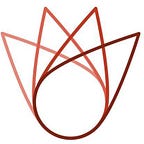Progress Clock: Nigerian solution-based media start-up enters the fray
Progress Clock is a solution-based media outlet that will document how people are solving humanitarian, economic, and social problems
By Patrick Egwu
Media organisations around the world are focusing their reporting on solution journalism — reporting that seeks to cover how people respond to societal issues such as poor healthcare and education systems, access to clean water facing communities — while exploring local initiatives aimed at solving such problems.
In Nigeria, a Progress Clock, a solution-based media outlet that will document how people are solving humanitarian, economic, and social problems is set to launch soon.
“We are looking at stories with authoritative insight, solutions-focused stories that will point us to how people are solving problems and how we can replicate working solutions,” said Innocent Eteng, the founder of Progress Clock. “We are looking at stories that inspire hope and possibly encourage others to get involved as development advocates. Complaining about the government’s failures alone would take us nowhere.”
Eteng said the motivation to set up a solution-based media organisation began in 2017 when he started following everyday conversation among Nigerians more closely, especially on social media and within his immediate environment.
The aim was to “know what they think about the Nigerian system, about the future of the country, about our leaders, about our problems among others. In the end, I realised that a lot of Nigerians have lost trust in the country’s leadership, institutions, and systems,” he said.
Part of Eteng’s goal for setting up the media outfit is to change the negative narrative by mainstream media organisations [local and foreign] who “for decades, presented our problems as either hopeless or near hopeless. While I admit that our problems are numerous [from corruption to insecurity to leadership crisis, the list is a long one] and sometimes linger unnecessarily, I felt the media overstretch to the point that their negative news is inflicting emotional burns on citizens. It was then I decided that I was going to start something that will heal these burns inflicted by negative news and traditional media.”
Two years ago, Eteng received a $5,000 grant from a joint partnership between the Tony Elumelu Foundation and the Africa Development Bank after his pitch for Progress Clock was selected as part of the 2019 cohort of the Tony Elumelu Entrepreneurship Programme [TEEP]. The TEEP is a $100-million commitment by the Elumelu family to empower 10,000 African entrepreneurs over a 10-year period through training, mentorship and funding.
Last week, Eteng was also selected for the Solution Journalism Network LEDE fellowship to receive a $3,500 seed funding and mentorship for Progress Clock.
The 25 selected fellows “will spend 12 months working on projects that leverage networks of journalism professionals; engage communities; disseminate solution stories; and elevate the people and narratives that problem-focused reporting misses,” a statement from the non-profit organisation said.
Eteng said the biggest challenge so far has been getting reporters who can turn in quality stories without much supervision.
“Progress Clock was planned to launch in the third quarter of 2020, but after discovering that our workforce needed more training to get strong at reporting what we want, we had to shift the launch date,” he said. “We have been providing much training and guidance to the workforce. And hopefully, we are getting closer to the mark.”
Nigeria’s media landscape is dynamic and competitive. Eteng agrees it’s not going to be easy while starting out with limited resources. However, he intends to scale up by leveraging their brand focus [solutions].
“Solutions journalism is beginning to attract interest in Nigeria. I have done several solutions-based stories and I am satisfied with the acceptance those stories have received among Nigerians. So, I am hopeful that as the first solutions-based outlet with a national scope and a knack for in-depth and authoritative reporting, we would survive,” he said.
Reporting for this story was supported by a micro-grant from Jamlab Africa
